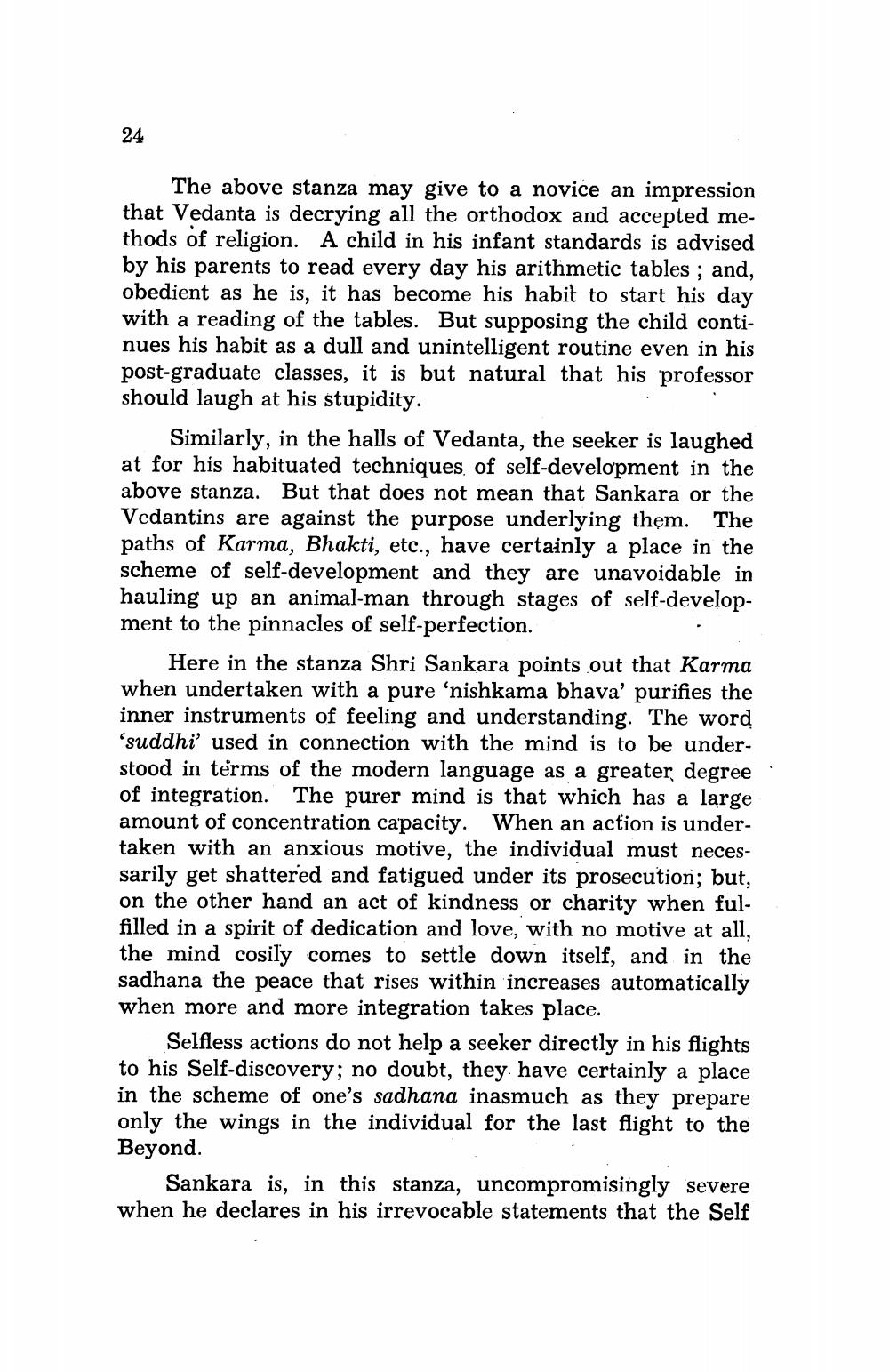________________
24
The above stanza may give to a novice an impression that Vedanta is decrying all the orthodox and accepted methods of religion. A child in his infant standards is advised by his parents to read every day his arithmetic tables ; and, obedient as he is, it has become his habit to start his day with a reading of the tables. But supposing the child continues his habit as a dull and unintelligent routine even in his post-graduate classes, it is but natural that his professor should laugh at his stupidity.
Similarly, in the halls of Vedanta, the seeker is laughed at for his habituated techniques of self-development in the above stanza. But that does not mean that Sankara or the Vedantins are against the purpose underlying them. The paths of Karma, Bhakti, etc., have certainly a place in the scheme of self-development and they are unavoidable in hauling up an animal-man through stages of self-development to the pinnacles of self-perfection.
Here in the stanza Shri Sankara points out that Karma when undertaken with a pure 'nishkama bhava' purifies the inner instruments of feeling and understanding. The wo 'suddhi' used in connection with the mind is to be understood in terms of the modern language as a greater degree of integration. The purer mind is that which has a large amount of concentration capacity. When an action is undertaken with an anxious motive, the individual must necessarily get shattered and fatigued under its prosecution; but, on the other hand an act of kindness or charity when fulfilled in a spirit of dedication and love, with no motive at all, the mind cosily comes to settle down itself, and in the sadhana the peace that rises within increases automatically when more and more integration takes place.
Selfless actions do not help a seeker directly in his flights to his Self-discovery; no doubt, they have certainly a place in the scheme of one's sadhana inasmuch as they prepare only the wings in the individual for the last flight to the Beyond.
Sankara is, in this stanza, uncompromisingly severe when he declares in his irrevocable statements that the Self




